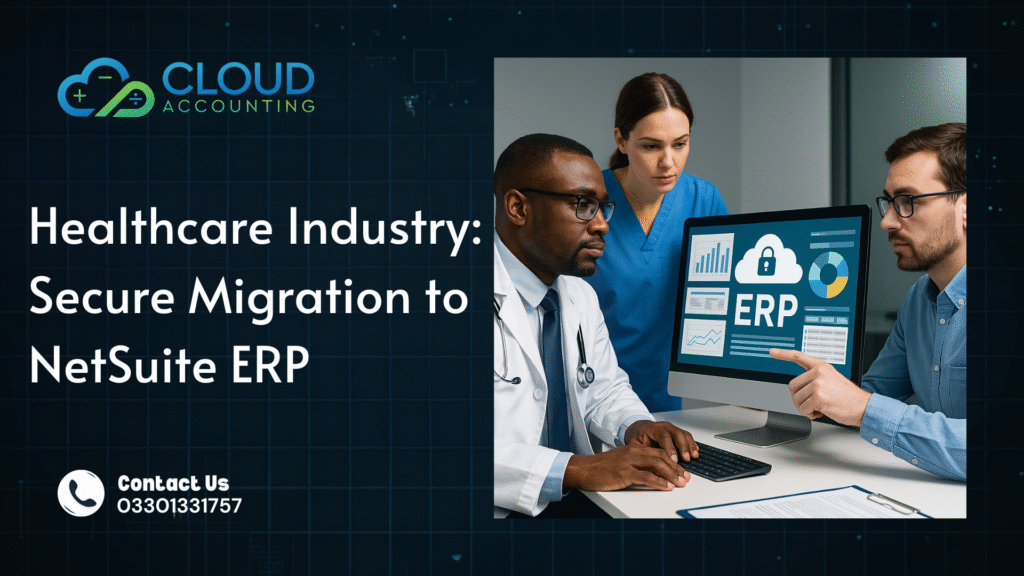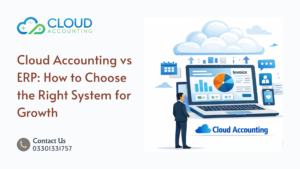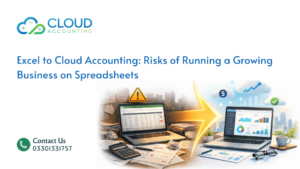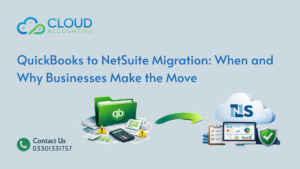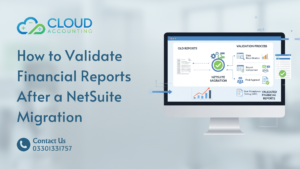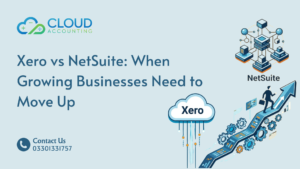The healthcare industry is under constant pressure to balance patient care, regulatory compliance, and financial efficiency — all while managing sensitive data. In 2025, as digital transformation accelerates, more healthcare organizations are turning to NetSuite ERP to unify their financial, operational, and clinical workflows under one secure cloud system.
Yet, one challenge remains: Healthcare NetSuite Migration must be done with absolute precision and security. Every record — from patient billing to supplier data — holds confidential information that cannot risk exposure. That’s why healthcare leaders are now focusing on migrations that prioritize encryption, compliance, and controlled access from the start.
Migrating to NetSuite isn’t just about upgrading software; it’s about strengthening the foundation of your organization’s data management and compliance posture. For hospitals, clinics, and medical groups aiming to modernize their systems, a secure Healthcare NetSuite Migration ensures they can manage finances, procurement, and patient records seamlessly while meeting HIPAA and GDPR standards.
Next, let’s explore why healthcare providers are increasingly choosing NetSuite ERP as their trusted solution for digital transformation.
Why Healthcare Providers Are Turning to NetSuite ERP
Healthcare organizations have complex operational needs that go far beyond typical accounting systems. From handling multi-department budgets to tracking medical supplies and managing compliance, the need for a unified ERP has never been greater. This is where NetSuite ERP for healthcare stands out.
NetSuite brings together financial management, procurement, inventory, and compliance tracking — all in one secure cloud environment. For healthcare providers, it eliminates fragmented systems and manual reconciliations that often lead to reporting delays or costly errors.
Here’s why more organizations are investing in Healthcare NetSuite Migration in 2025:
- End-to-End Visibility: NetSuite gives CFOs, administrators, and practice managers real-time insight into budgets, expenses, and revenue streams.
- Data Integrity and Accuracy: Every transaction is centralized, reducing duplication and ensuring consistent reporting across departments.
- Built-In Compliance Tools: NetSuite helps maintain HIPAA and GDPR data protection standards through secure data access and audit trails.
- Scalable Cloud Infrastructure: Whether it’s a local clinic or a nationwide hospital network, NetSuite scales effortlessly as operations expand.
- Improved Cash Flow and Billing Accuracy: Automated financial workflows and integrated billing improve revenue cycle management.
In short, NetSuite ERP for healthcare provides the digital backbone needed for growth, control, and compliance. But with sensitive data involved, migration must be done with the right safeguards.
Next, we’ll uncover the key security challenges you need to consider before starting a Healthcare NetSuite Migration.
Key Security Challenges in Healthcare NetSuite Migration
Migrating healthcare data is not just another IT task — it’s a high-stakes process involving patient information, financial records, and regulatory obligations. A single oversight can expose sensitive data or cause compliance violations. That’s why Healthcare NetSuite Migration requires strict attention to security at every step.
Here are the top challenges healthcare providers face during migration:
1. Patient Data Confidentiality
Healthcare organizations store vast amounts of patient information — from medical histories to billing details. During migration, data must remain encrypted both in transit and at rest. Any unsecured file transfer or misconfigured access control can lead to breaches, violating HIPAA and GDPR standards.
2. Access Control and User Permissions
In a hospital or clinic, multiple departments — finance, operations, IT — need different levels of access. Without clearly defined roles, users may gain access to sensitive records they shouldn’t see. NetSuite ERP for healthcare supports granular permission settings, but they must be configured carefully during migration.
3. Data Mapping and Validation Risks
Migrating from legacy systems means handling diverse data structures. If data mapping isn’t precise, crucial details like patient IDs, invoices, or supplier information could end up misplaced or duplicated. This compromises both accuracy and trust in the new system.
4. Compliance Gaps During Transition
Healthcare data must remain compliant before, during, and after migration. Any temporary gap in audit trails or data retention policies could lead to compliance violations. Secure NetSuite migration demands continuous documentation and validation throughout the process.
5. Insider Threats and Human Error
Even with advanced tools, human mistakes remain a leading cause of data breaches. Employees handling exports or imports need strict protocols, verified credentials, and clear audit logs.
Healthcare data is too valuable to risk on partial precautions. The right approach is a structured, security-driven migration strategy that ensures data integrity from start to finish.
Next, we’ll look at how Cloud Accounting executes a secure Healthcare NetSuite Migration using a proven 4-step process.
Step-by-Step Approach to a Secure Healthcare NetSuite Migration
At Cloud Accounting, we understand that migrating healthcare data demands more than just technical accuracy — it requires absolute trust, compliance, and accountability. Our 4-step process ensures that every Healthcare NetSuite Migration is executed securely, on time, and without disrupting critical operations.
Here’s how we do it:
Step 1: Assessment & Planning
Before moving a single record, we begin with a deep assessment of your existing systems. Our team maps every data source — patient billing, supplier payments, payroll, and financial ledgers — to identify dependencies and compliance requirements.
- Evaluate data volume and sensitivity
- Document HIPAA/GDPR controls
- Define migration scope and timeline
- Set up encryption and access policies
This groundwork helps us design a NetSuite ERP for healthcare migration plan that aligns with your organization’s structure and regulatory obligations.
Step 2: Data Preparation & Validation
Next, we clean, standardize, and validate your data. Duplicate or incomplete records are flagged and corrected before migration begins.
- Data cleansing to eliminate inconsistencies
- Validation scripts to confirm data accuracy
- Controlled staging environment for testing
- Secure backups to prevent data loss
By the end of this phase, your data is verified and ready for transfer to NetSuite under full encryption.
Step 3: Secure Migration Execution
Our specialists then execute the migration using secure transfer protocols and verified API integrations. Each batch of data — financial, operational, or patient-related — is encrypted and monitored in real-time.
- Encrypted file transfer (TLS 1.2 or higher)
- Multi-layer authentication for all users
- Automated reconciliation to detect mismatches
- Live monitoring for migration integrity
This ensures a secure NetSuite migration with zero tolerance for data breaches or unauthorized access.
Step 4: Post-Migration Testing & Support
Once migration is complete, our team performs end-to-end verification to ensure every module, workflow, and access control operates correctly in the new environment.
- User acceptance testing (UAT)
- Reconciliation of financial reports
- Access rights review for HIPAA compliance
- Ongoing support and optimization
After migration, Cloud Accounting remains your long-term partner — monitoring performance, refining workflows, and ensuring your ERP continues to meet healthcare compliance standards.
With a structured process like this, Healthcare NetSuite Migration becomes a controlled, compliant transition — not a security risk.
Next, let’s look at why healthcare providers choose Cloud Accounting as their trusted migration partner.
Benefits of Choosing Cloud Accounting for Healthcare NetSuite Migration
When dealing with sensitive healthcare data, you can’t afford guesswork. Choosing the right partner determines whether your migration strengthens your organization—or exposes it to unnecessary risk. Cloud Accounting has built its reputation on executing secure, compliant, and efficient Healthcare NetSuite Migration projects for hospitals, clinics, and medical groups across the globe.
Here’s what sets us apart:
1. Proven Expertise in Healthcare Systems
Our team understands the operational and regulatory complexity of the healthcare industry. We’ve migrated data from EHR platforms, legacy billing systems, and custom healthcare accounting tools into NetSuite ERP for healthcare, ensuring accuracy and compliance at every stage.
2. End-to-End Data Security
From encryption to secure access protocols, your data remains protected before, during, and after migration. Every file transfer uses TLS encryption, and our systems are regularly audited for HIPAA and GDPR compliance
3. Compliance-Ready Framework
We don’t just move data—we migrate it with full documentation and audit trails. Cloud Accounting’s process ensures that all access rights, retention policies, and data management standards meet industry regulations, including HIPAA, GDPR, and local data privacy acts.
4. Transparent Project Management
You’ll have full visibility throughout the migration process. We provide real-time progress reports, testing updates, and a dedicated migration manager who oversees every step of your Healthcare NetSuite Migration.
5. Minimal Downtime and Disruption
Our methodical migration schedule is designed around your operations. This means your staff can continue working in your existing system while data is securely transferred and verified in the background.
6. Post-Migration Support and Optimization
Once your system goes live, our experts stay involved. We help your finance and admin teams adapt to NetSuite’s modules, fine-tune dashboards, and set up best-practice workflows for long-term performance.
A successful Healthcare NetSuite Migration isn’t just about getting to the cloud—it’s about protecting your data, empowering your teams, and maintaining patient trust. Cloud Accounting delivers all three.
Next, let’s look at the common mistakes healthcare providers should avoid during their NetSuite migration journey.
Common Mistakes to Avoid During Healthcare NetSuite Migration
Even with the best intentions, many healthcare organizations fall into avoidable traps when moving to a new ERP. These errors can lead to delays, data corruption, or—worse—compliance issues. Understanding these pitfalls helps you plan your Healthcare NetSuite Migration the right way.
Here are the most frequent mistakes healthcare providers make—and how to avoid them:
1. Skipping the Data Cleanup Stage
Outdated, duplicated, or incomplete records are the silent killers of migration success. Many teams rush to move everything “as is,” only to discover corrupted or mismatched data later. Before you begin your NetSuite ERP for healthcare migration, invest time in cleaning and verifying all records.
2. Ignoring Compliance During Transition
Healthcare organizations often assume compliance only matters post-migration. In reality, HIPAA and GDPR requirements apply during every stage of the process. Unsecured test environments, shared credentials, or unencrypted transfers can all trigger violations. Always maintain full documentation and access controls throughout the migration.
3. Underestimating the Complexity of Legacy Systems
Legacy healthcare systems often store data in inconsistent formats or nonstandard databases. Failing to map this correctly leads to missing transactions or duplicate records in NetSuite. Every data point must be traced from origin to destination with validation rules in place.
4. Neglecting Staff Training
Migration success doesn’t stop when the data moves—it depends on how well your team uses the new system. Without proper training, your staff may revert to manual workarounds, creating reporting errors and compliance gaps. Schedule training sessions early so users are comfortable with NetSuite ERP for healthcare features from day one.
5. Choosing a Generic Migration Provider
Healthcare data migration is not like retail or manufacturing. It involves patient privacy, medical billing rules, and specific compliance standards. Partnering with a generalist firm that lacks healthcare expertise often leads to rework and costly oversights.
Avoiding these mistakes ensures your Healthcare NetSuite Migration runs efficiently, securely, and in full alignment with compliance obligations.
Next, let’s look at a real-world example of how one healthcare provider achieved a successful and secure transition with Cloud Accounting.
Real-World Example – How a Private Clinic Achieved Secure ERP Migration
When a mid-sized private healthcare clinic in the UK approached Cloud Accounting, their systems were outdated and scattered. They managed billing in one platform, payroll in another, and inventory through spreadsheets. The result? Inconsistent reports, delayed reimbursements, and rising data security concerns.
Their goal was clear — move everything into NetSuite ERP for healthcare while maintaining HIPAA and GDPR compliance. But they couldn’t afford downtime or risk exposing patient or financial data. That’s where Cloud Accounting’s structured approach made the difference.
The Challenge
The clinic faced three critical problems:
- Disconnected systems created duplicate and missing billing entries.
- Their IT staff had limited experience with ERP data handling.
- Patient and financial data had to stay fully protected during migration.
Our Solution: 4-Step Healthcare NetSuite Migration
Cloud Accounting applied its proven Healthcare NetSuite Migration framework:
- Assess: We audited all data sources, identified inconsistencies, and mapped every record to the new NetSuite environment.
- Prepare: Duplicate and incomplete records were cleaned, and encrypted backups were created to ensure recoverability.
- Migrate: Data was transferred using secure APIs with full encryption and monitoring. Financial, payroll, and billing data were migrated in separate batches for validation.
- Verify & Support: Once live, our team verified every financial report and access level, ensuring HIPAA compliance and zero data loss.
The Outcome
Within six weeks, the clinic went live with NetSuite ERP for healthcare. The results were immediate:
- 100% of records migrated securely with zero data breaches.
- Monthly reporting time dropped from 10 days to 2.
- Staff gained real-time insight into patient billing, procurement, and payroll.
The clinic’s finance director summed it up best:
“We finally have one source of truth. Cloud Accounting handled every stage of our migration with professionalism and care. It felt like working with an in-house team.”
This real-world success shows how a structured, secure, and compliant approach can transform healthcare operations through NetSuite migration.
Final Thoughts & Call to Action
Healthcare organizations can’t afford to rely on outdated or fragmented systems — not when compliance, patient trust, and financial accuracy are on the line. A well-executed Healthcare NetSuite Migration does more than modernize your ERP system. It builds a foundation for secure, compliant, and efficient healthcare management.
At Cloud Accounting, we don’t treat migration as a technical task — we treat it as a mission-critical transformation. Every record, permission, and workflow is handled with the care your data deserves. Whether you’re a private clinic, hospital, or healthcare network, our experts ensure your transition to NetSuite ERP for healthcare is secure, compliant, and future-ready.
Thinking about upgrading your ERP system? Start your secure, compliant Healthcare NetSuite Migration today. Contact Cloud Accounting for a free migration assessment.

